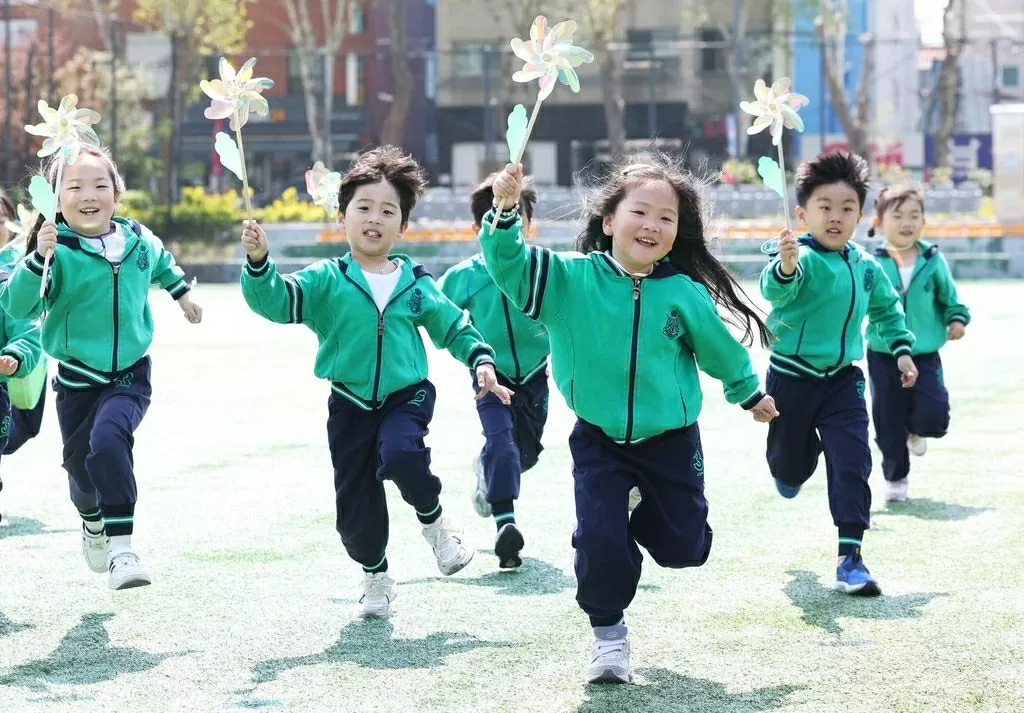
6 in 10 Korean children spend less than 2 hours a day playing
Latest
 |
| Children run with pinwheels at Suwon Gymnasium in Suwon, Gyeonggi Province, Wednesday. (Source: Yonhap) |
In a survey with 2,804 elementary students aged between 10 and 12 across the country on April 9 to 22, 62 percent of the respondents said they had less than 2 hours of playtime per day. Some 15 percent said they had less than an hour.
“Playing with friends” topped the list of activities children wished to participate in with their spare time at 54.6 percent, followed by “playing games with friends” at 33.5 percent.
Other activities included “watching YouTube and videos” at 29.2 percent, “playing sports” at 23.6 percent and “having family time” at 21.2 percent.
The survey showed many Korean children experience hectic days with little playtime.
Thirty percent of those in sixth grade said they return home after 8 p.m., after school and scheduled activities such as going to private educational academies known as "hagwon," while 4 percent said they come home after 10 p.m.
When surveyed about attending accelerated curriculum courses, 31.1 percent of the respondents said, “The earlier, the better,” while 27.8 percent said, “Such studies should not begin at an early age.”
Notably, “study” topped the list of things respondents worried about at 69 percent, followed by “relationships with friends” at 33 percent, “physical appearance” at 24 percent and “bullying” at 14 percent.
The social issues that children found alarming included “war” at 62.5 percent, “low birthrates” at 65.9 percent, “climate crisis” at 53.2 percent and “getting a job” at 38.6 percent.
The survey comes amid growing concerns over Korean children’s emotional and social well-being.
The OECD Child Well-being Dashboard, which monitors countries’ efforts to promote child well-being with 19 key internationally comparable indicators, shows that Korean children are more likely than children worldwide to have an internet connection at home and are among the top cognitive performers in math and science from the age of 10.
However, Korean children were below average in satisfaction with their lives as a whole. More specific indicators of their social well-being indicate they feel they do not have enough friends or places to play in their area.

















